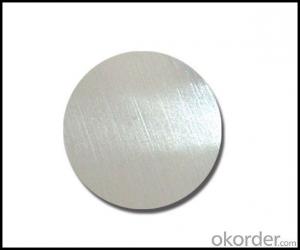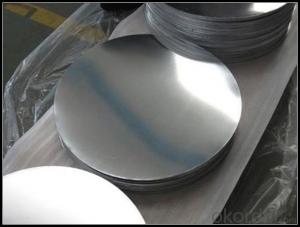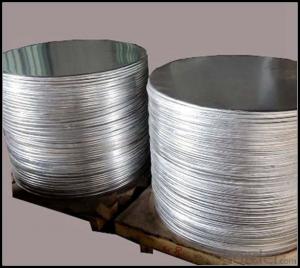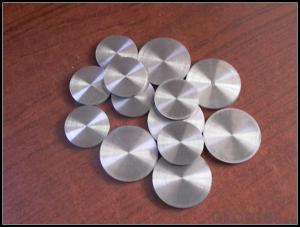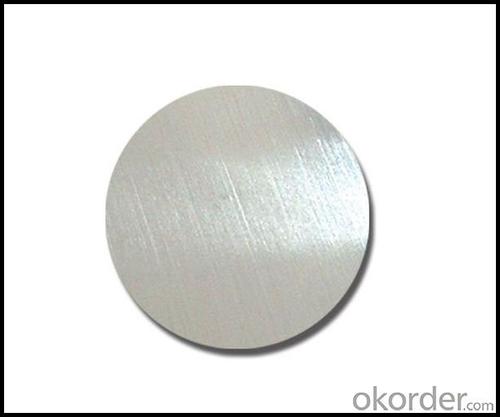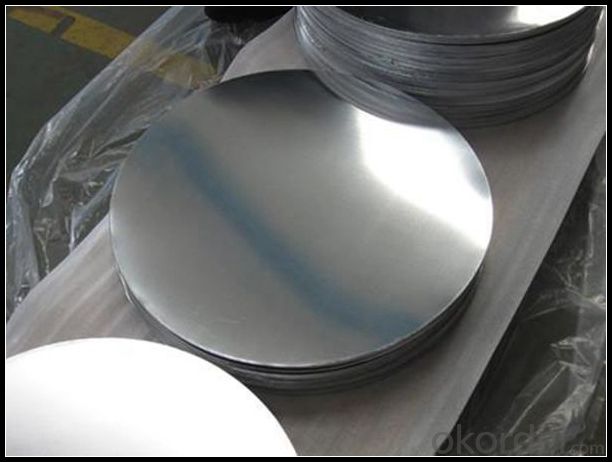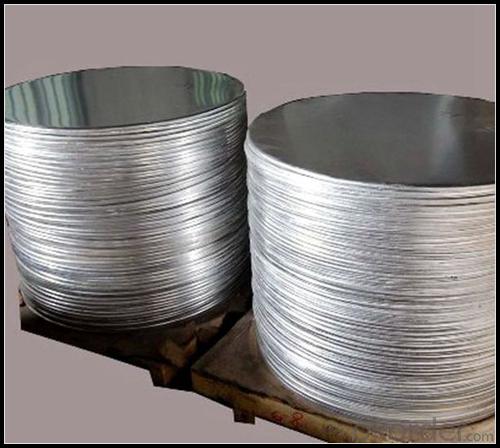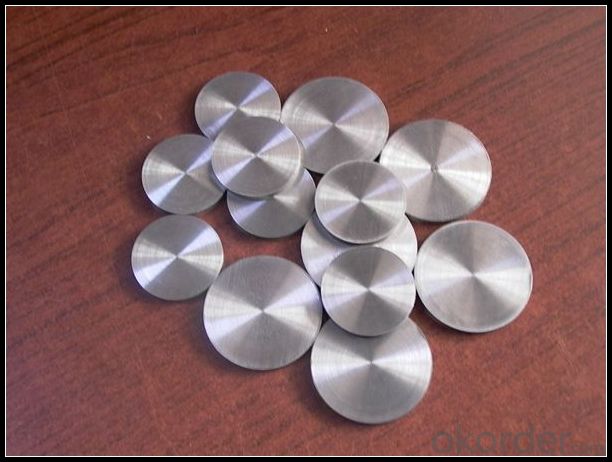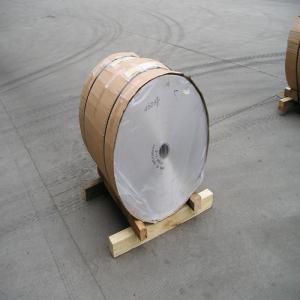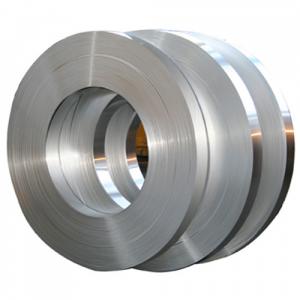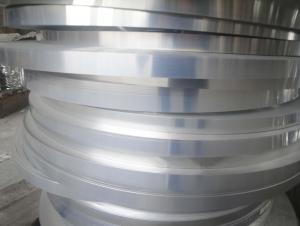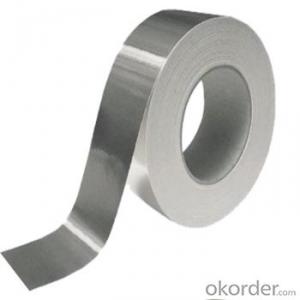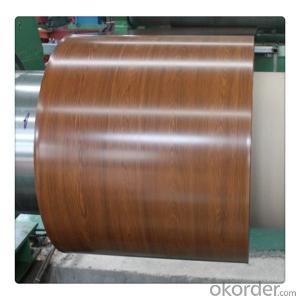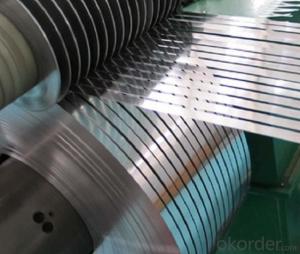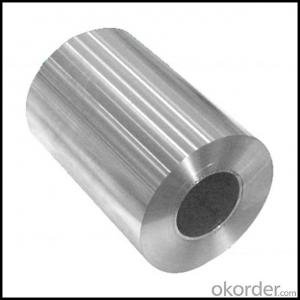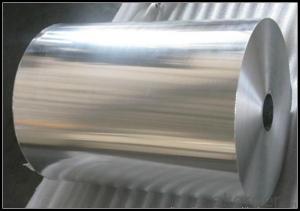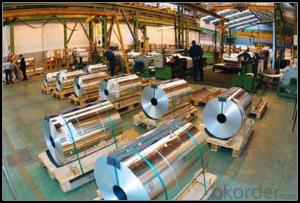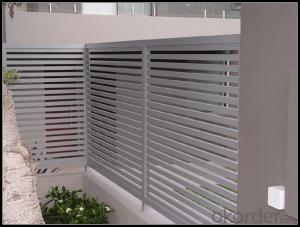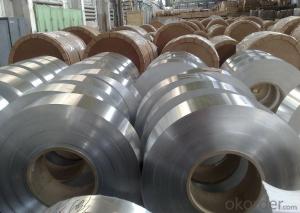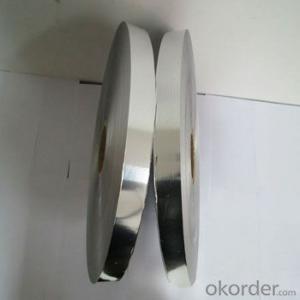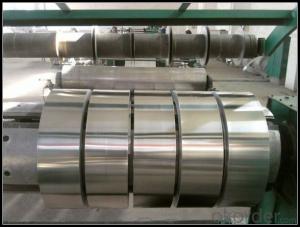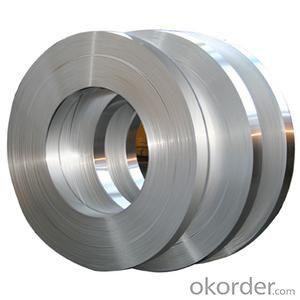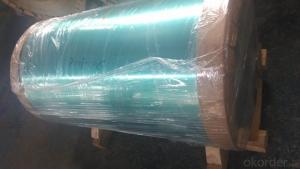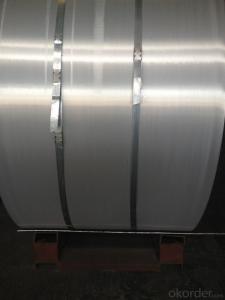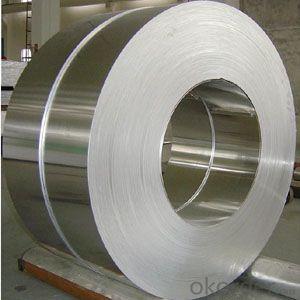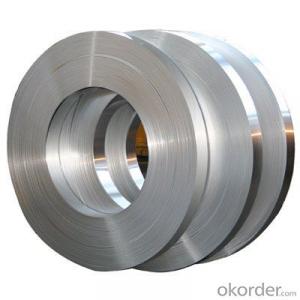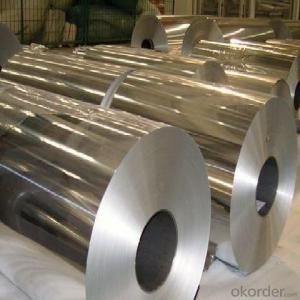Aluminum Transition Strips for Wall Cladding and Ceiling Panel Aluminium Sheets
- Loading Port:
- Tianjin
- Payment Terms:
- TT OR LC
- Min Order Qty:
- 1 m.t.
- Supply Capability:
- 4999 m.t./month
OKorder Service Pledge
OKorder Financial Service
You Might Also Like
Specification
1. Specification of Aluminum
1) Alloy | 1050, 1060,1100, 3003 3004 3105 3005 5005 5052 etc |
2) Temper | O/H12/H14/H1/H18/H32/H34/H36/H38//H111/H112/H116/H321/T6/T651/T3/T351 etc |
3) Thickness | 0.1mm to 6mm |
4) Width | 20mm to 3300mm |
5) Coil weight | 100kgs to 6 tons depends on actual requirement |
6) Core material | Aluminum alloy |
7) Coil Inner diameter | 76mm, 152mm,or as required |
2. Application of Aluminum
(1).Interior: wall cladding, ceilings, bathrooms, kitchens and balconies, shutters, doors...
(2).Exterior: renovations...
(3).Advertisement: display platforms, signboards, fascia, shop fronts...
3. Feature of Aluminum
The effects of aluminium in antiperspirants have been examined over the course of decades with little evidence of skin irritation.[8] Nonetheless, its occurrence in antiperspirants, dyes (such as aluminiumlake), and food additives has caused concern.
4. Certificate:
SGS and ROHS(if client request, paid by client), MTC(plant provided), Certificate of Origin(FORM A, FORM E, CO), Bureau Veritas and SGS (if client request, paid by client), CIQS certificate
5. Image of Aluminum
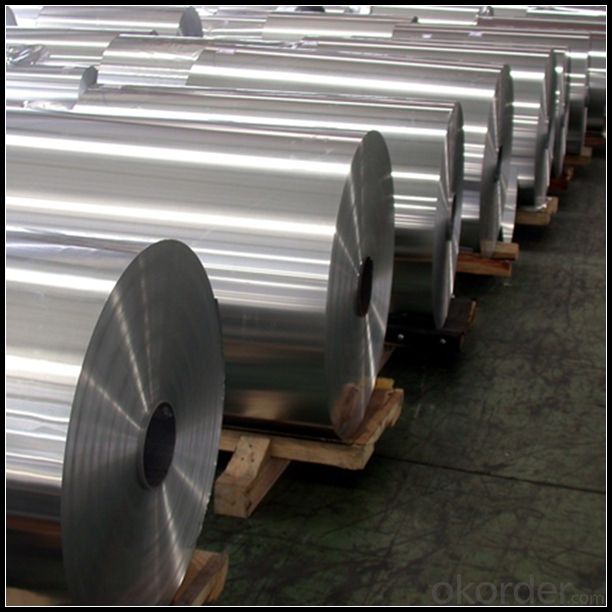
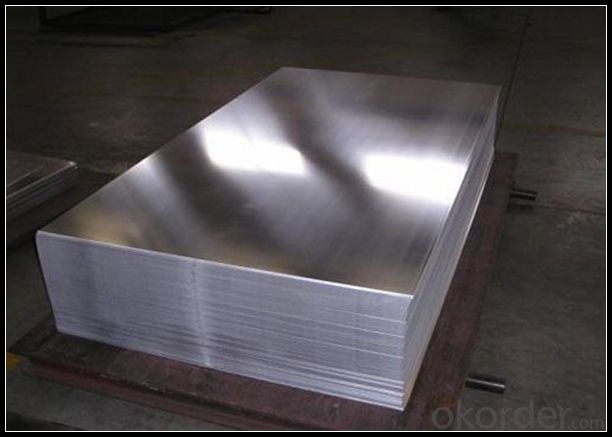
6. Our Service
1. Reply your enquiry in 24 working hours. |
2. OEM, buyer design, buyer label services provided. |
3. Exclusive and unique solution can be provide to our customer by our well traned and professional engineers and staffs. |
4. We can provide free sample for your check |
5. We have the certification of ISO 9001 |
6. Timely delivery |
7. Special discount and protection of sales area provided to our distributor. |
8. Good after-sale service. |
7. FAQ
Q: What is the produce prase? | ||||
A: Normally it would be 40days after received your deposit. | ||||
Q: Can you provide free samples? | ||||
A: Yes, free samples will be sent to you on freight at destination. | ||||
Q: Can I get your latest catalogue? | ||||
A: Yes, it will be sent to you in no time. | ||||
Q: What is the MOQ? | ||||
A: 3 tons | ||||
Q: What are your payment terms? | ||||
A: We accept L/C, D/A, D/P, T/T, West Union,etc. |
- Q: Aluminium belt car
- Automobiles are machines of high speed. In order to give their performance the best, people prefer to improve their roads to adapt to cars rather than re - adapt them to bad roads. Now some people are interested in track cars, keen on retro, playing games and satisfying personal needs. 3 、 tracks are now used on slow tractors and tanks. In order to improve the speed of the military, or the use of wheeled armored personnel carriers.
- Q: This question asks about the various applications of aluminum strips within the construction industry.
- <p>Aluminum strips are used in construction for a variety of purposes. They are commonly used in curtain wall systems for their lightweight and high-strength properties, providing structural support while maintaining transparency. Aluminum strips are also used in window and door frames for their durability and resistance to corrosion. In addition, they are utilized in roofing systems for their ability to withstand weather conditions and for their energy efficiency. Furthermore, aluminum strips are employed in electrical wiring and conduits due to their excellent conductivity and resistance to electrical corrosion. They are also used in the fabrication of various construction tools and equipment. Overall, aluminum strips are valued for their versatility, strength, and resistance to wear and tear in the construction industry.</p>
- Q: This question seeks to understand the distinctions between aluminum and copper as materials used for siding in construction.
- <p>Aluminum and copper siding differ in several ways. Aluminum is lightweight, corrosion-resistant, and requires minimal maintenance, making it a popular choice for durability and low cost. It is also available in a variety of colors and finishes. Copper, on the other hand, is heavier and more expensive, but it develops a natural patina over time, which can add a unique aesthetic appeal. Copper is also highly durable and recyclable, and it does not require painting. However, it is more prone to denting and can be more challenging to install. In terms of thermal performance, copper conducts heat better than aluminum, which can be an advantage in certain climates.</p>
- Q: What are the various types of waterproofing materials that utilize aluminum strips in their composition?
- <p>Aluminum strips are used in several types of waterproofing materials due to their durability and resistance to corrosion. Some common types include: 1) Aluminum Foil Tapes: These are adhesive tapes with an aluminum foil backing, used for sealing joints and seams. 2) Aluminum Coated Fabrics: Fabrics coated with aluminum to provide a barrier against water and UV rays, often used in construction and roofing. 3) Aluminum Flashing: Sheets of aluminum used to cover joints and intersections in roofing and walls to prevent water infiltration. 4) Aluminum Waterproofing Membranes: These are flexible sheets that can be applied to surfaces to create a waterproof barrier. 5) Aluminum Coated Self-Adhesive Sheets: These are sheets with a self-adhesive backing and an aluminum coating, used for sealing and waterproofing applications. Each type serves specific waterproofing needs and is chosen based on the application and environmental conditions.</p>
- Q: This question asks if there are any potential health hazards linked to the use of aluminum strips.
- <p>There are some concerns regarding the use of aluminum strips, particularly in the context of cooking utensils and food packaging. Prolonged exposure to aluminum has been linked to potential health risks, including Alzheimer's disease, although the evidence is inconclusive. Aluminum can leach into food, especially in acidic environments, which may lead to increased aluminum intake. However, the FDA and other health authorities have not issued warnings about the use of aluminum cookware or food packaging, as the levels of aluminum typically ingested are considered safe. It's important to note that more research is needed to fully understand the potential health implications of aluminum exposure.</p>
- Q: Is it possible to utilize aluminum strips in environments with high temperatures?
- <p>Aluminum strips can be used in high-temperature environments, but their performance and longevity depend on the specific conditions and the alloy type. Pure aluminum has a melting point of 660掳C (1220掳F), but aluminum alloys can be designed to withstand higher temperatures. For instance, some aluminum alloys are used in aerospace and automotive applications where they experience high temperatures. However, prolonged exposure to high temperatures can lead to material degradation, so it's crucial to select the right alloy and consider the temperature limits specified by the manufacturer for the intended application.</p>
- Q: Is it possible to use aluminum foil as a material for roofing purposes?
- <p>While aluminum foil itself is not a suitable roofing material due to its lack of durability and structural strength, it can be used as a temporary solution in emergency situations or for small repairs. Aluminum foil is not designed to withstand the elements over time, nor does it provide the necessary insulation or protection against water and wind that a proper roofing material should. For long-term roofing solutions, it's best to use materials specifically designed for roofing, such as asphalt shingles, metal sheets, or tiles, which offer greater durability and weather resistance.</p>
- Q: What factors should be considered to determine if an aluminum strip is suitable for a specific application?
- <p>To determine if a certain type of aluminum strip is suitable for your application, consider the following factors: mechanical properties such as strength and ductility, corrosion resistance, thermal conductivity, and electrical conductivity. Assess the strip's dimensional tolerances and surface finish to ensure they meet your requirements. Check if the strip's formability and weldability align with your manufacturing processes. Also, consider the strip's weight and cost-effectiveness. It's advisable to consult with a material scientist or supplier who can provide specific recommendations based on your application's unique needs.</p>
- Q: What are the various color options for aluminum strips?
- <p>Aluminum strips are available in a variety of colors to suit different applications and aesthetic preferences. Common colors include natural silver, which is the standard mill finish, black, white, and clear anodized for a protective and decorative finish. Other colors like gold, bronze, and various shades of blue, green, and red are also offered by some manufacturers. Custom colors can be achieved through anodizing or powder coating processes, allowing for a wide range of color options to meet specific design requirements.</p>
- Q: Describe the steps involved in the manufacturing process of aluminum strips.
- <p>The process for manufacturing aluminum strips involves several key steps. Initially, aluminum ingots are melted in a furnace, often using a direct current furnace for better control over the melting process. The molten aluminum is then poured into molds to create a cast billet. This billet is then heated and passed through a series of rolling mills to reduce its thickness and achieve the desired strip dimensions. During rolling, the aluminum is continuously cooled to control its temperature and maintain its mechanical properties. After rolling, the aluminum strip may undergo additional processes such as annealing to improve ductility or coating to provide a protective layer. Finally, the strip is cut to length, inspected for quality, and packaged for distribution.</p>
Send your message to us
Aluminum Transition Strips for Wall Cladding and Ceiling Panel Aluminium Sheets
- Loading Port:
- Tianjin
- Payment Terms:
- TT OR LC
- Min Order Qty:
- 1 m.t.
- Supply Capability:
- 4999 m.t./month
OKorder Service Pledge
OKorder Financial Service
Similar products
Hot products
Hot Searches
Related keywords
